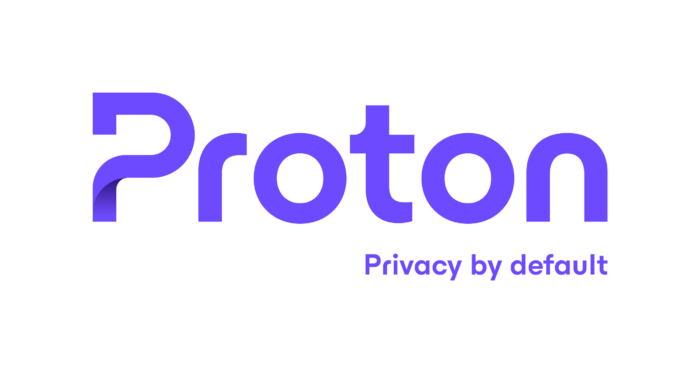Proton Goes Non-Profit

Proton, the company behind popular privacy-focused services like Proton Mail and Proton VPN, has announced a new non-profit structure with the foundation of the Proton Foundation. The change comes as Proton celebrates its 10th year in operation after being founded in 2014 with a public crowdfunding campaign.
The idea behind the Proton Foundation is to safeguard and advance Proton’s original mission — that is, to protect and defend online privacy. The Foundation will do this in a few ways. First, it will be a legal barrier to Proton products and services becoming less privacy-focused.
Proton will also be stashing away a percentage of its profits for the Foundation to invest in privacy-focused projects and potentially develop new Proton services.
“Over the last decade, we’ve seen more and more user data get hoovered up by big tech companies and governments, with privacy an afterthought — or no thought at all,” Andy Yen, Proton founder, writes in a blog post. “We want to help shift the tide, and the Proton Foundation is a way to do that.”
In a PSA, Yen adds that the Foundation will be run by a separate board of trustees and that the 1% of profits set aside for the Foundation won’t be influenced by him or the other current leaders at Proton. “The board of trustees can choose to spend the funds on a wide variety of things, including grants, investments, advocacy efforts, and even new Proton products,” Yen writes.
Proton says it will also rely on the community to help select recipients of financial support. Users will be able to nominate organizations for Proton Foundation backing, and the Foundation will then review and decide whether to add the orgs to a slate that users can vote on.
The shift to a non-profit model comes as the landscape for privacy-focused tech companies — especially those that don’t monetize user data — has grown more challenging. Proton, which counts over 100 million users of its services, has struggled with profitability and faced legal roadblocks. Last year, Proton was ordered to hand over the IP addresses of users who visited a particular web page to Swiss authorities investigating a protest, a ruling that Proton has fought.
But transitioning to a non-profit doesn’t mean that Proton will become a charity case. Proton will remain a for-profit corporation, Proton AG, with the mission of returning value to its shareholders, a Proton blog post emphasizes. In fact, Proton intends to “aggressively” expand its team and invest in marketing and growth, Yen says, and is also “evaluating” various strategic acquisitions.
The Proton Foundation has a “significant” ownership stake in Proton AG, meaning that it has the power to influence but not control the company’s direction, Yen says. (The Foundation, by Swiss law, has to act in the public’s best interest, but that doesn’t mean it can’t aim for growth.) And while the Foundation’s primary source of funds will be the 1% of Proton AG profits, the Foundation will also seek other forms of financing, such as private donations and — in the case of new Proton services — VC investment.
Nonetheless, Proton will continue to offer free, open-source products, Yen stresses. “While we plan to continue working on Proton’s current offerings, the additional resources that the Foundation will bring will help us launch new, innovative products in the future,” Yen writes. “We believe that the best way to change the tech landscape is to create compelling alternatives to the status quo.”
Proton Mail, Proton Calendar, Proton Drive, Proton VPN, and Proton Pass will all remain available to the public for free, and Proton will continue to operate its existing businesses, Yen says. At the same time, he adds, he and the rest of the Proton team will look to launch new privacy-focused products, potentially in hardware, in the future.
“Proton’s mission is to advance and defend privacy, not just maintain the status quo,” Yen writes. “And we believe that the best way to achieve that is to build a sustainable, independent and innovative organization.”
Proton GM, Proton’s consumer hardware subsidiary, is also transitioning to a non-profit model as “Proton Technologies,” as is Proton’s fund to support open-source development, Open Privacy. The entire Proton organization will be overseen by the Proton Foundation’s board and CEO, Toni Gidwani, a founding member of the Defending Digital campaign to protect the 2020 U.S. presidential election from hacks.
Proton’s pass/fail tool to determine whether a password is secure enough for use is now PassMonitor.
The company also rolled out a new version of PassMonitor with a feature that warns users when they attempt to reuse the same password on multiple sites. The tool, which can be self-hosted, now also lets users save notes about a password in the user interface and view information about a password, like when it was added and the number of times it was seen, in a more detailed view.
PassMonitor is free for individuals, but organizations — including managed service providers (MSPs) and managed security service providers (MSSPs) — can request a paid license for the self-hostable version of PassMonitor with additional features like an audit log through Defending Digital.
PassMonitor is also available as a paid cloud service with cloud backup, syncing, and more, starting at $2 per month per user.
Proton’s attempt to pivot to a non-profit hasn’t been without controversy.
Some former Proton staffers claim that they were dismissed for attempting to organize a union to negotiate for higher wages and better working conditions. Proton denies the claim, arguing that it let the employees go for attempting to “sabotage” the company. Proton founder Andy Yen has said that the employees were working with a “vocal minority” of Proton’s team to take control of the company.
In the wake of the firings, a number of the employees who left formed their own non-profit, a Proton competitor called Privacy Labs. Privacy Labs says that it’s building a “next-generation” encrypted and private email platform designed to be more scalable and profitable than Proton Mail, with the goal of reinvesting the majority of the profits generated by Privacy Labs back into the broader privacy ecosystem.
Security advocates have criticized Proton for failing to turn a profit and instead relying on venture capital to fund its development, arguing that Proton’s financial woes could force it to make decisions that are at odds with its users’ desires for privacy. Proton claims that it never traded on user data and that its business model — which involved charging for premium features while making basic privacy-focused tools available for free — was always designed to be sustainable.
In its blog post, Yen pushed back on the idea that Proton’s new non-profit status is a concession due to a lack of profitability. Proton, he says, is profitable and has been for a while, growing 60% year over year in 2023.
“Proton’s mission has always been to put user privacy first, and we don’t think that mission should be contingent on Proton’s current leadership,” Yen writes. “The creation of the Proton Foundation is a legal formality recognizing something that has always been true from its beginnings — Proton is not a primarily profit-driven organization. When we launched our crowdfunding campaign exactly 10 years ago, we had a simple yet powerful vision: to remake the internet in a way that is private by default, and serves the interest of all society, not just the interest of a few Silicon Valley tech giants.”
Read our disclosure page to find out how can you help VPNCentral sustain the editorial team Read more






User forum
0 messages